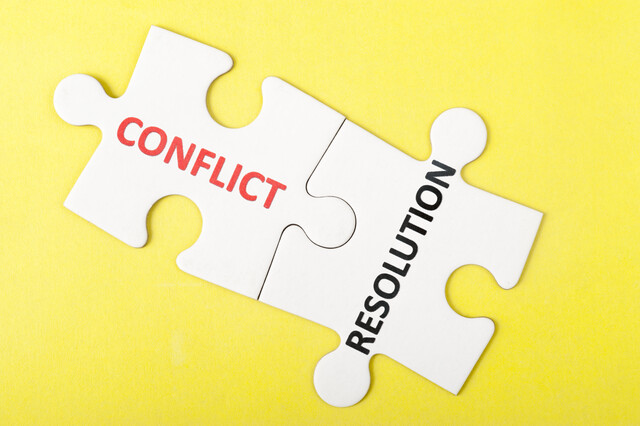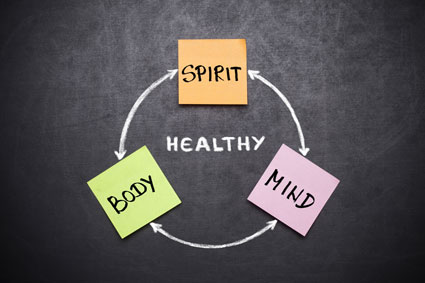Life is full of surprises, some good, some challenging. When life challenges us, psychological resilience is what helps us deal with, and overcome, adversity.
Psychological resilience is the ability to adapt and overcome difficulties. Adversity can be anything from disappointment over not being chosen for a group, to a severe illness or death of a loved one, and anything in between.
What is Psychological Resilience?
Psychological resilience is not a magical ability to sail through difficulties without a care. Rather, it is a realistic, buildable psychological tool for coping with upsetting or difficult life events. Even though some people seem to come by resilience naturally, everyone has at least some psychological resilience to build upon.
Adversity, disappointment, and difficulty are an unavoidable part of life. Author and motivational speaker Jack Canfield has a "life equation" that is useful here:
E+R=O, where E=events, R=responses, and O=outcome.
All of us are subject to life experiences, which have outcomes whether we choose to act or not. The only way to change outcomes we don't like is to change our responses to life events.
There are probably a thousand reasons, at any given moment, why someone is upset or angry, and most (practically all) of the time, their upset has absolutely nothing to do with you or your actions. We tend to mentally take "blame" for others' behavior, at least once in a while, and such blame is nearly always misplaced.
Let's use the example of feeling ostracized at work. Sandy, who is a friendly but private person, had been working as an administrative assistant at a large corporation for about 6 months. Initially, the other admin assistants had been very friendly, inviting her to lunch frequently and stopping by her desk to chat when they were in the area. Over the last two months, however, the other admins seem to avoid her. They no longer stop by her desk or invite her to lunch with them, and most of them are "in a hurry" every time Sandy sees them, unable to stop and talk. Sandy has asked a couple of the admins she is closest to if something is wrong, but they always say "everything is fine." In her mind, Sandy has gone over all her interactions with her workmates and can't think of any way she might have offended any of them.
Sandy could respond psychologically to these snubs in one of several ways. The most emotionally damaging response would be for Sandy to mentally take full responsibility for the situation, believe she's unacceptable or flawed in some way, assume those snubbing her are completely in the right, and believe their behavior is somehow justified. There is an excellent chance none of these emotional responses are true. It is not really possible for one person to be solely responsible for a situation. As the old saying goes, "It takes two to tango!" Her co-workers' perceptions, emotional states, and opinions are influencing the situation as well.
A resilient person may initially experience an upsetting emotional response to a situation, but does not allow it to consume them. Instead, the resilient individual will consider other possibilities. In Sandy's case, there are several possible reasons for her co-workers' behavior. Sandy is single and nearly all her co-workers are married and/or have children, so Sandy often doesn't say much at get-togethers, since topics relevant to those married and/or with children tend to dominate the conversation. Maybe others feel she's bored or quietly judging them since she rarely converses when with the group. Perhaps the other admin assistants, who have all worked for the company for a number of years, are a tightly-knit "clique," reluctant to welcome "new" members, particularly those who don't share much of their personal life with others (Sandy is a private person). Maybe one (or several) of her co-workers are having problems at home. In all these examples, Sandy's co-workers are behaving the way they are because they are uncomfortable (perhaps they mistake Sandy's quiet demeanor for snobbery). There is nothing "wrong" with either Sandy or her co-workers. Not everyone you meet is destined to become your best friend!
If she chooses, Sandy can approach her co-workers again, make an effort to be more outgoing and involved with her fellow admins, or offer to lend a kind ear to those who seem down or under stress. If her efforts are rejected, Sandy may not be happy about the rejection and may feel upset about it for a little while (being rejected is painful for everyone), but she knows her psychological resilience will help her through the crisis. Having successfully recovered from rejection at other times in her life, Sandy is confident in her ability to weather this situation, as well.
If Sandy is indifferent to the group's attention, she can continue to be polite to her co-workers while remaining unconcerned with their opinions. Ultimately, Sandy's response to the perceived event (and any subsequent behavior) by her co-workers determines the emotional and social outcome she ultimately experiences.
Characteristics of Resilient People
Some of the personal characteristics associated with resilience include self-confidence in your abilities, positive self-image, communication and problem-solving skills, impulse control, the ability to seek help when needed, willingness to consider multiple scenarios, healthy lifestyle/habits, and willingness to help others. All of these attributes can be cultivated. Resilience is kind of like a mental muscle; it can be strengthened. Each adversity one overcomes helps one become emotionally stronger and more resilient, if you allow it to.
Mood Disorders and Resilience
According to Dr. Cheryl Lane Ph.D., mood is clinically defined as "a persistent emotional state that affects how the person sees the world." (This differs from the popular definition, which defines mood as a temporary and/or an easily changeable state.)
Literally millions of people suffer from some type of mood disorder. Mood disorders include chronic depression, anxiety, panic disorder, seasonal affective disorder, bipolar disorder, and depression caused by substance abuse. Mood disorders, like physical disorders, can be manageable or severe. In fact, brain chemistry research shows biological predispositions exist for many mental disorders. Not all who have a predisposition, however, will develop a disorder. Typically, there is some type of life event, known as a "trigger," which "activates" the genetic predisposition.
An analogy of this would be the development of alcoholism in an individual. It is thought about 10 percent of alcoholics have a predisposition toward alcoholism – basically, their brain chemistry is biologically "tuned" toward that particular addiction. If alcoholism is known to run in the family, some family members may choose to never try alcohol in order to avoid becoming addicted. If they avoid alcohol and never develop any liking for it, their predisposition toward alcoholism will not activate. If, however, a predisposed individual begins drinking "just once in a while," it's likely they will become addicted; once the "switch" is turned on, brain chemistry takes over and the occasional drink becomes an addiction.
Despite the huge amount of research on mood disorders and brain chemistry, some people insist chronic depression or anxiety are "all in your mind" and will disappear if you just "pull yourself up by your bootstraps." This advice is about as useful as telling a diabetic that eating a donut will fix all their blood sugar problems!
Too often, opinions on medication for mental disorders run to the extreme. On one end of the spectrum, we have the patient who refuses medication altogether, insisting they can "think" themselves out of it. On the other end, is the patient who thinks once he takes the "magic pill," all his mood disorders will be resolved. Neither of these beliefs is realistic. For those who truly suffer from a severe, persistent mood disorder, "thinking yourself out of it" will not work – remember, we're not talking about feeling sad for a day or two, we're talking about persistent, debilitating emotions. If you suffer from a mood disorder, you may be able to control your mood to a point, but keeping your emotions in check every waking moment is exhausting. There is no shame in seeking medical help. One of the characteristics of resilient people is to seek help when needed.
Medication exists to help with mood disorders, but medications are not a cure-all. They help relieve ("take the edge off") some of the more severe emotions. It takes resilience to not only work with your psychiatrist to find the appropriate medication(s), but to use the medication as a tool and allow your lift in mood to give you the emotional space you need to concentrate on personal growth, instead of fighting the feeling of continual emotional bombardment.
Being Lonely vs. Being Alone
There is a big difference between loneliness and merely being alone. It is possible to be alone without feeling lonely, and to be incredibly lonely in a crowd of friends.
Loneliness is defined as sadness due to being apart from other people. Being "apart" from others does not need to be physical. Feelings of anxiety or depression can make one feel separated from others, unable to relate. Going through life difficulties, such as emotional trauma or grief, can also make one feel isolated, unable to relate to others.
Being alone, however, is defined as "without anyone or anything else; not involving or including anyone or anything else; separate from other people or things" (Merriam-Webster Online Dictionary). This is not necessarily a negative thing. Being alone can be quite beneficial.
"Alone-time" is actually a valuable thing. Time alone gives one an opportunity for deep thinking or problem-solving. It can be peaceful restful, productive, and restorative. The key to successful alone-time is to use the time, even if use of your alone time is a much-needed nap! Instead of bemoaning the fact you've got the house to yourself, celebrate! Consciously use your alone-time. Write letters, have a bubble bath, work on a project you've been neglecting. Or just sit and think! Most of us lead such busy lives, we rarely have time to "sit and ponder." Some of the best ideas come from daydreaming – allow yourself to indulge in this creative form of thinking and you may just come up with a solution for a long-standing problem!
The Grieving Process
Almost everyone has heard of "the five stages of grief" – denial, anger, bargaining, depression, and acceptance. Originally proposed by Elisabeth Kubler-Ross several decades ago, Kubler-Ross eventually regretted proposing the theory, as it was taken as a cut-and-dried formula with a "linear" progression, which is was not intended to be.
Despite our similarities, every human body responds differently to stress, illness, and trauma. Every person's grief is individual as well. There is no "proper" way to grieve, nor is there a set time line. The process takes as long as it takes; setting a "time limit" on your grieving process will not help you or anyone around you.
Whether grieving the end of a relationship, the diagnosis of a severe illness, the loss of a wonderful job, or the death of a loved one, denial, anger, bargaining, depression, and acceptance are part of the process – as is sadness, feelings of physical illness, moments of panic, and moments of utter despair. The important things to remember when grieving include the following:
- Be kind to yourself – Do not expect to rebound instantly after a loss. No matter how "small" the loss may seem to others, it is not small to you! Accept you'll grieve and allow yourself to do so, despite the opinions of others.
- Accept you will need time to grieve.
- Do not impose a "time limit" on your feelings. Again, everyone experiences grief differently; grieving takes as long as it takes – sometimes years.
- Don't expect "closure." Rose Kennedy is quoted as saying, "It has been said, 'time heals all wounds.' I do not agree. The wounds remain. In time, the mind, protecting its sanity, covers them with scar tissue and the pain lessens. But it is never gone." Anyone who's ever experienced a great loss can confirm this is true. While it sounds depressing, it's actually helpful to realize you may never feel a sense of closure over the loss, but the pain will dull in time.
- Seek support from friends, family, members of your church's congregation, or grief support groups. Don't try to tough it out or go it alone. There is absolutely no shame in admitting a need for the support of others; in fact, it is a resilient person who reaches out for help.
- Remember to leave the house! This may sound like a silly suggestion, but grief-stricken people often isolate themselves. Hiding inside the house with the blinds shut for days on end will not help your grieving process! A good rule of thumb is three days – if you haven't been out of the house (besides running to the mailbox in your pajamas!) in three days, you need to get out and see other people. Even if you go to the grocery store in the next town to avoid talking to people you know, at least you are out among the living. Get up, take a shower, brush your teeth, and go!
- The world does not stop for your grief. Particularly after the death of a loved one, it seems the world should stop somehow, at least for a few moments. Can't the rest of the world tell your world has just been shattered?! Sadly, the answer is a resounding no. The world goes on regardless of our own personal processes.
- Remember to breathe. Perhaps one of the most important pieces of advice on this list! During the grieving process, "waves" of grief tend to wash over you, giving you the feeling of being unable to breathe. Sometimes, panic sets in. If and/or when this occurs, remember the feeling will pass and take some slow, deep breaths. Eventually, the waves become smaller; again, it just takes time.
Teaching Children Resilience
Perhaps you remember being told as a child that, "Life isn't fair." Sadly, it's true. In many ways, life is not fair. Good, kind people lose their jobs, get divorced, have family tragedies, and experience health problems. Children face disappointment every day, too. Adults may see these disappointments as minor, but to a child, being ignored on the playground or being embarrassed by someone at school can be devastating.
Children can be taught resilience in the following manner (this method works well for adults, too!):
- The world is not "all about you." As much as we wish it were so, the world does not revolve around one person. In order to live in society, we must learn to cooperate, and part of cooperating with others is considering their needs and desires, as well as your own.
- Don't internalize other people's anger or upset. Just because someone is angry with you does not mean it's justified. As mentioned earlier, people have a million reasons for their behavior, which usually has nothing to do with you personally. If you make a mistake, by all means correct it! Just don't accept responsibility for something that is not your doing, or not under your control.
- Help others.
- Seek help when you need it.
- Practice honest, positive self-talk. Don't call yourself names like "stupid" or "klutz." You may not be the smartest or most athletic person in the world, but you certainly aren't the worst. Instead of owning the label "stupid," for example, simply acknowledge you did something which was perhaps not the best choice. A "stupid" choice does not make you a stupid person!
- Acknowledge your strengths. Don't discount your personal strengths. They are the building blocks for strengthening your psychological resilience.
- Be kind to yourself. Always!































